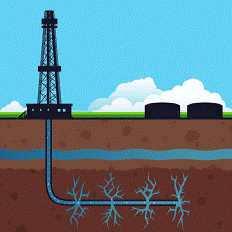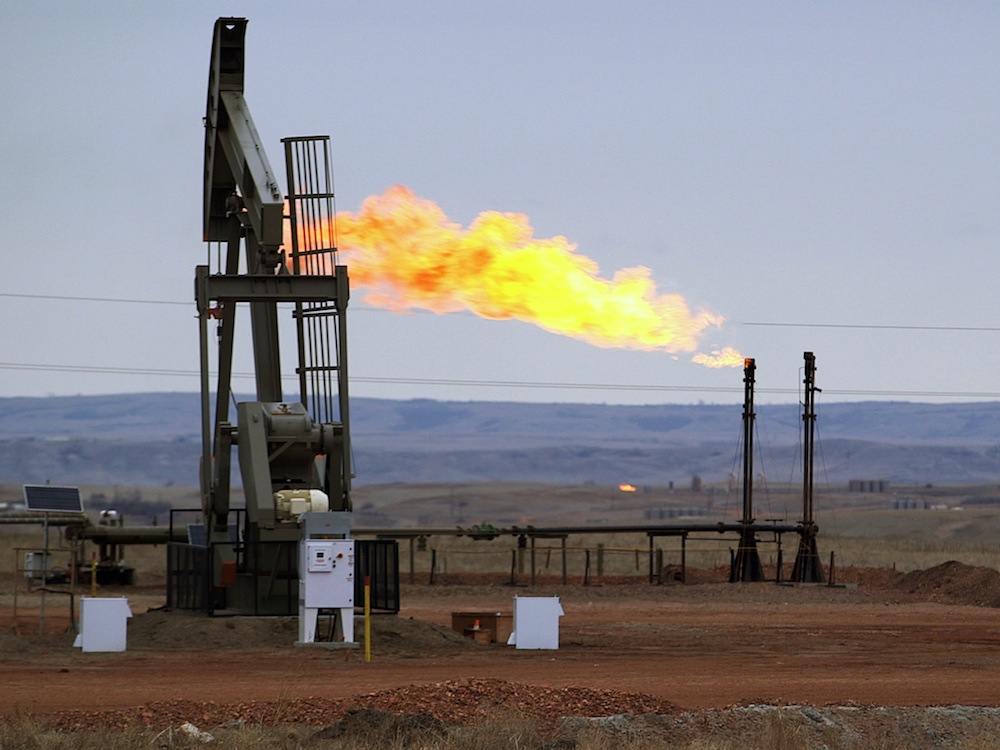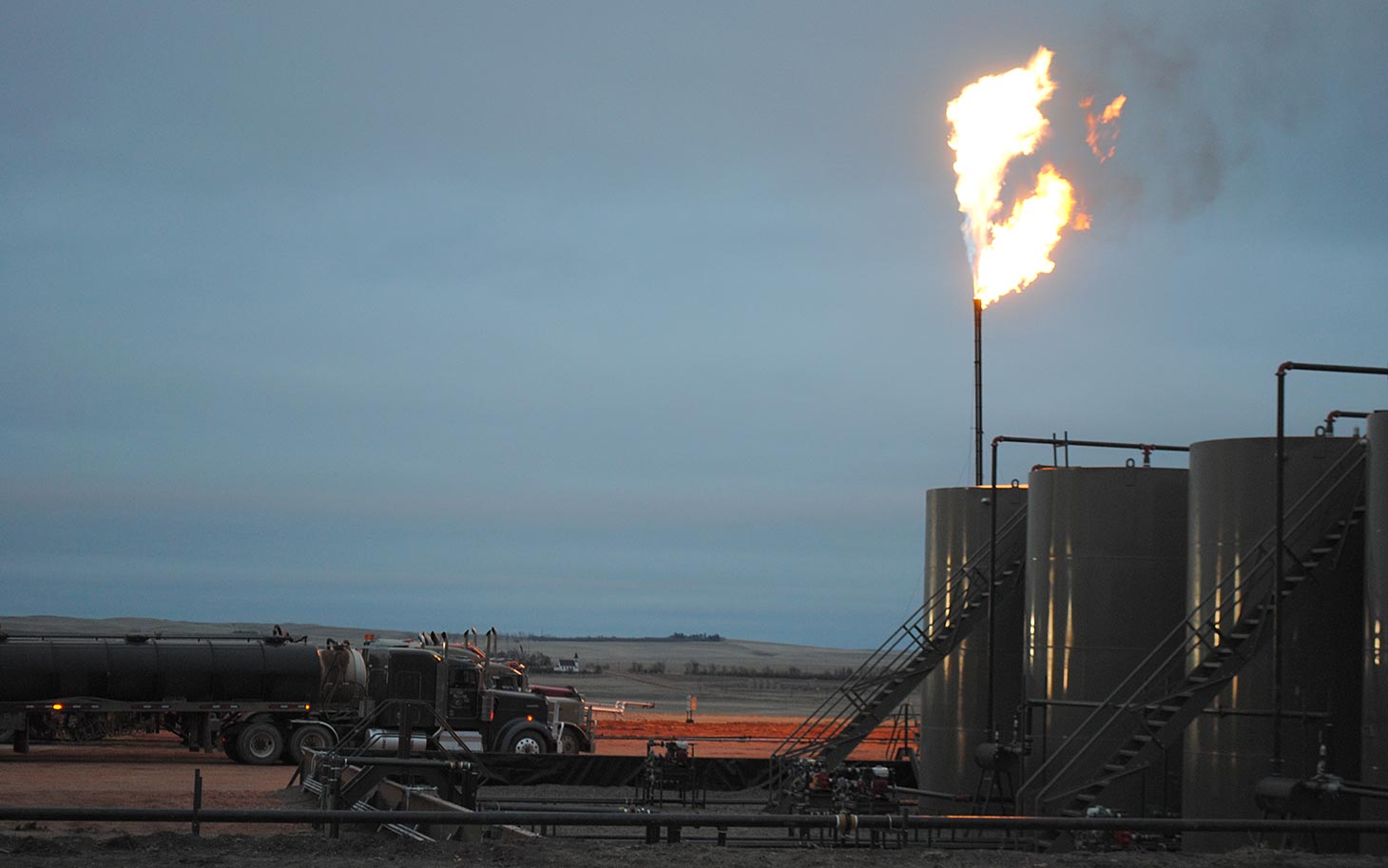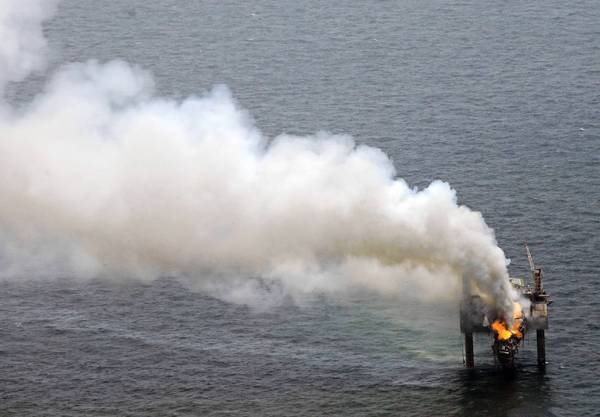fracking
frack is whack. Hydraulic fracturing, known as fracking, is a method of extraction that pollutes the air, land and water.
fracking blasts huge volumes of water mixed with toxic chemicals deep into the earth to fracture rock formations and release oil and fossil gas (a.k.a. natural gas).
leaks and ecological devastation
the air started to stank after the mining company built a fracking-waste pond near the extraction site. Strange liquids leaked from the waste pond. Well water contamination. Dangerous levels of glycols in the water sickened people in the region. Suits against the state's Dept of Environmental Protection. the expansion of the extractive industry threatened the citizens' common good. Fracking has tangible effects on the land and on the people living there. the land and the environment - the commons - needed to sustain collective life. Too many politicians are willing to let companies ravage the land and poison the water supply. the energy industry has come to dominate politics in these states.
air
fracking pumps toxic methane directly into the air through the venting process.
They advertise this fossil gas as "clean natural gas."
But the main component of fossil gas is methane which is a potent
greenhouse gas.
land
fracking may cause earthquakes due to the high pressure used to
extract oil and gas from rock
and the storage of excess wastewater on site.
water
fracking dumps toxic chemicals into our rivers and into our drinking water supply.
This drilling process injects millions of gallons of water, sand and toxic chemicals
into horizontal wells to crack open shale rock and release fossil gas.
fracking waste pond
all you can see on the ground is the drilling tower and the storage tanks. In the extraction process millions of gallons of water are mixed with toxic chemicals which produces what the industry calls waste water. You can't drink it and you shouldn't even get near it. There is a waste water pond that stores this mess near the industrial site.

wastewater
we need to protect our water.
during the fracking process, after millions of gallons of water are mixed with toxic chemicals and pumped underground at high pressure, the chemical-laden water that returns to the surface, bringing with it gas and oil, is referred to as wastewater. Fracking wastewater is a toxic cocktail containing salts, benzene, chemical additives and radioactive materials. This wastewater is then injected into wells across the state where it is supposed to stay underground, quarantined so that it does not get into our aquifers. This dubious process has already sparked concern about how we can be certain that the wastewater won't somehow leach into our clean water resources. btw, the oil and gas industry refer to this wastewater as "salt water".
what are we going to do with a trillion gallons of poisoned water we can't drink, we can't store, and we can't clean? In California, according to the Environmental Protection Agency, the state is not complying with federal law and is putting aquifers at risk. Fracking in California
deSmogBlog is a good resource.
- Safe Drinking Water Act: Wikipedia sdwa scroll to the Underground Injection Control (UIC) Program and the Halliburton loophole
- Scientic American article: Safety first, fracking second Halliburton loophole
methane venting
methane is the main component of fracked gas.
carbon dioxide (CO2) and methane (CH4) are potent greenhouse gases that absorb the sun's heat, thus adversely warming the atmosphere. Methane is 87 times more potent than CO2 and is a major contributor to climate change. Methane is the main component of fossil gas, a.k.a. natural gas, ngas.

the oil and gas industry produce industrial emissions of methane pollution. The noxious methane is leaked and intentionally flared (they burn it off) along with other air pollutants from all of their oil and gas wells, and other infrastructure. These leaks are an invisible oil spill and it is impacting our health, communities, and climate.

ngas is methane
The production, transport and burning of natural gas produces significant air pollution. Methane, the main component of natural gas, is a potent ghg greenhouse gas, 80 times more potent than carbon dioxide at trapping heat in the atmosphere. Other natural gas emissions include carbon dioxide (CO2), sulfur dioxide (SOX), nitrogen oxides (NOX), carbon monoxide (CO), particulates, volatile organic compounds (VOCS) including benzene, and more pollution.
natural gas fire continues to burn after well blowout
Fire burning off the Louisiana coast, fueled by a "clean" natural gas well blowout, as workers assessed how to stem the out-of-control leak.
